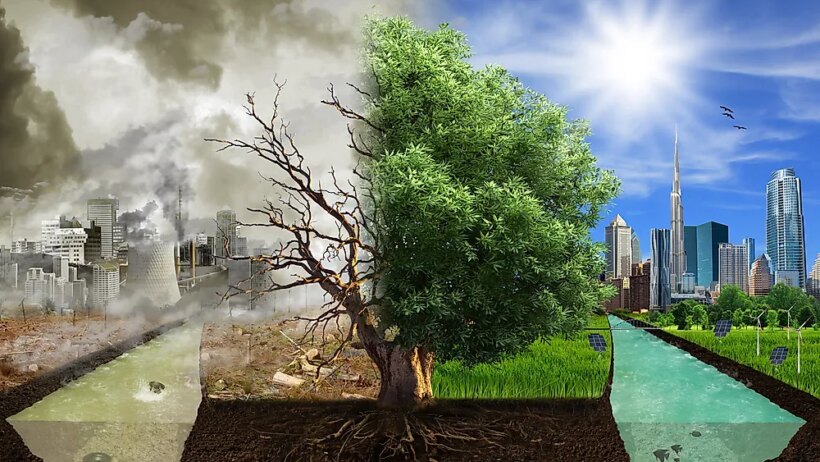Global warming, exacerbated by climate change, is no longer a distant threat; it is a present-day crisis that affects all facets of life on Earth. Understanding its immediate impacts requires a multi-faceted approach. This discussion will delve into the environmental, economic, and social repercussions of global warming, providing insight into the urgency of the situation and potential avenues for mitigation.
One of the most conspicuous immediate effects of global warming is the increase in extreme weather events. Over the past few decades, instances of hurricanes, wildfires, floods, and heatwaves have surged dramatically. Scientific consensus indicates that warmer temperatures intensify the water cycle, leading to more severe precipitation and storm systems. For instance, hurricanes are drawing more energy from the warmer ocean waters, resulting in increased wind speeds and greater rainfall. Similarly, higher temperatures contribute to prolonged droughts in various regions, stressing ecosystems and agricultural productivity.
Additionally, the ramifications of global warming are acutely felt in polar and glacial regions. The polar ice caps and glaciers are melting at an alarming rate, contributing to rising sea levels. This phenomenon threatens low-lying coastal areas, increasing the risk of flooding and displacement of populations. The implications extend beyond immediate threats; ecosystems that rely on stable ice environments are beginning to collapse, leading to irreversible damage. Marine life, such as seals and polar bears, can no longer find the necessary habitats, which exacerbates biodiversity loss.
The economic ramifications of global warming are equally concerning. As natural disasters become more frequent and severe, the financial burden on infrastructures—such as roads, bridges, and homes—increases exponentially. According to various studies, the cost of rebuilding and recovery efforts from climate-related disasters runs into billions of dollars. This financial strain is exacerbated for economically disadvantaged areas that may lack the resources to recover effectively. The insurance industry also faces mounting pressures as the frequency and cost of claims rise, leading to increases in premiums and challenges in coverage for at-risk areas.
Moreover, the agricultural sector suffers direct consequences from climate change. Shifted growing seasons due to unpredictable weather patterns affect crop yields. For example, staple crops such as wheat, rice, and maize are sensitive to temperature fluctuations and altered precipitation patterns. The ramifications are profound—not only do food prices soar, but food insecurity becomes a reality for millions. Harvest failures can spark increased competition for diminishing resources, potentially leading to social unrest and geopolitical tensions.
The social implications of global warming are intertwined with its environmental and economic effects. Vulnerable communities, often those in developing nations, bear the brunt of climate-related disasters. These populations frequently lack adequate housing, healthcare, and emergency response infrastructure, rendering them particularly susceptible to the adverse effects of climate change. The displacement of communities creates climate refugees—individuals who are forced to leave their homes due to changing environmental conditions. This shifting demographic presents significant challenges for national and global governance, as displaced persons seek safe haven and basic services.
The realm of public health is also compromised in a warming world. Higher temperatures can exacerbate cardiovascular and respiratory diseases. Additionally, extreme weather events can overwhelm healthcare systems and disrupt service delivery, limiting access to essential care. Vector-borne diseases, such as malaria and dengue fever, are likely to spread into new territories as warmer climates allow pathogens and their carriers to thrive in previously inhospitable regions. This health crisis requires immediate attention from global health organizations and policymakers.
Public awareness and advocacy are critical in addressing the immediate impacts of global warming. Citizens are increasingly demanding action from their leaders and institutions to take decisive steps toward climate resilience. Grassroots movements have emerged worldwide, galvanizing individuals from all walks of life to advocate for environmental policies. Educational initiatives aimed at informing the public about the science of climate change and its impacts are essential. Such movements foster an understanding of the urgency required to address this escalating crisis.
Mitigation strategies must also be implemented to combat global warming’s immediate impacts. Transitioning to renewable energy sources stands prominent among these strategies. Reducing dependence on fossil fuels will alleviate greenhouse gas emissions and decrease the carbon footprint of energy production. Wind, solar, and hydroelectric power present viable alternatives to traditional energy sources, promoting sustainability while economically stimulating growth in emerging industries.
Additionally, enhancing public transportation systems can reduce reliance on single-occupancy vehicles, lowering emissions and traffic congestion. Urban planning that emphasizes green spaces and sustainable practices will contribute to environmental resilience. These strategies necessitate collaboration among governments, businesses, and communities to coexist harmoniously with nature, thus fostering a more sustainable future.
In conclusion, the immediate impacts of global warming are profound, affecting environmental, economic, and social dimensions of life globally. From intensified weather patterns and agricultural woes to public health concerns and community displacement, the challenges are multifaceted and dire. The necessity for immediate action cannot be overstated. Collective global efforts toward mitigation and adaptation, paired with individual responsibility and advocacy, are paramount as we endeavor to navigate the complexities of climate change. Action today can forge a path towards a sustainable tomorrow.






